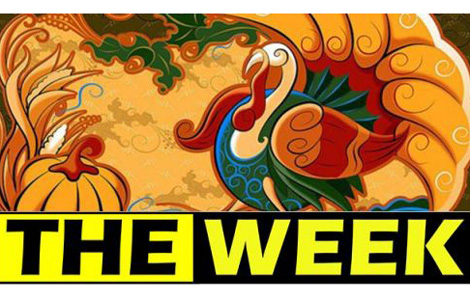Californian almonds going nuts among Chinese buyers
Updated: 2013-11-30 07:37
By Yu Wei in San Francisco (China Daily USA)
|
|||||||||
Although the name for US almonds in China has been changed to "ba dan mu" from "da xing ren", China's appetite for the nuts remains insatiable.
From 2012 to 2013, China imported more than 94,428 tons of almonds from California, making it the largest export market destination for California almonds for the fourth year in a row, according to the Almond Board of California.
"This is the second-largest of our almond shipments to China," said Richard Waycott, president and CEO of the board.
Export volume of almonds from the US to China increased from 10,000 tons in 2002 to 100,000 tons in 2010, with shipments doubling in the past six years.
"The Almond Board of California and certain almond processing companies have been working with Chinese industries for almost 20 years. More and more companies have become involved in treatment processing and almond processing in China and that increased distribution and product availability, made it much easier for the consumer to find the product," he said.
Meanwhile, the board established some major working relationships with the Chinese government, including an agreement it signed with the China Chamber of Commerce some years ago.
"Earlier this year, we upgraded that agreement with the chamber and the California Department of Food and Agriculture," Waycott said. "This new agreement is to increase cooperation between the almond industry in China and California, and to do work together for the development of the almond industry in China."
In the past decade, almond consumption in China has grown tremendously. However, US almonds went through an identity crisis last year. The almond's Chinese name had long been "big American almond" or "da xing ren", but that was found to be a misnomer. Chinese consumers considered US almonds to be apricot kernels, but in fact they were actually flat peach kernels.
After clearing things up between the Chinese food industry and government, the Almond Board of California announced that "ba dan mu" was the new name for US almonds early this year.
Waycott said the name change caused plenty of confusion for consumers and it has been his job to try to make the transition as smooth as possible.
"I think by now, most of the old packaging should be gone and the new packaging with the new name is in place," he said.
Waycott admitted that the name change had a negative impact on sales, which were off by 12 percent from August 2012 to July 2013 compared to the previous year.
"The year was still the second largest shipment year ever," he said. "We have to be patient and let the new name become familiar to consumers and continue our programs to educate consumers about the health and nutritional aspects of the almonds with the new name."
Waycott said he didn't expect future almond sales in China to grow as quickly as they have over the last five years, but the long-term opportunity for growth in China was still very significant.
"From the 94,428 tons today, we could easily be doubling or tripling that in the years to come. We see a very promising future in China," he added.
In China, eating nuts has long been linked to a healthy lifestyle. As Chinese consumers have become more affluent and health-conscious, almonds, once served only during holiday seasons, have become a common snack.
A recent study published in the New England Journal of Medicine found that regular nut eaters were less likely to die from any cause and enjoyed longer lifespans than those who didn't eat nuts.
"We are excited about the prospects for the China market as the Chinese consumer appreciates the nutritional benefits of almonds," said Brian Tormey, director of sales and marketing at Treehouse Almonds, a Delano-based company that offers a range of shelled and in-shell almond products.
China is currently one of the top three export destinations for Treehouse almonds. The company shipped more than $11.4 million worth of almonds to China last year.
"Treehouse is forecasting robust growth of all of our almond products in China for the coming year, as distribution makes significant gains throughout the country and the inclusion of almonds in traditional market segments such as bakery and candy products," Tormey said.
Huang Xianxin, a Chinese engineer who works in Silicon Valley and was heading back to China for vacation, said US almonds and fish oil were top choices for him to buy as gifts to take back home.
yuwei12@chinadailyusa.com
(China Daily USA 11/30/2013 page10)

 Heavy cargo flights taking off
Heavy cargo flights taking off
 Liaoning arrives in Hainan for mission
Liaoning arrives in Hainan for mission
 Americans kick off 2-day holiday shopping marathon
Americans kick off 2-day holiday shopping marathon
 UK wants no limit to relations
UK wants no limit to relations
 Cities issue new housing policies
Cities issue new housing policies
 Americans mark Thanksgiving Day with parades
Americans mark Thanksgiving Day with parades
 Dubai Expo may fuel boom, but has risk
Dubai Expo may fuel boom, but has risk
 Tokyo may expand air defense zone
Tokyo may expand air defense zone
Most Viewed
Editor's Picks

|

|

|

|

|

|
Today's Top News
Japan must see air zone is about safety: experts
UK wants no limit to relations
Americans kick off 2-day shopping marathon
China rejects imported US GM corn
Japan urged to see safety of air zone
Premier calls for better links
DPRK nuclear reactor may be in use again: IAEA
SF auto show dazzles
US Weekly

|

|







